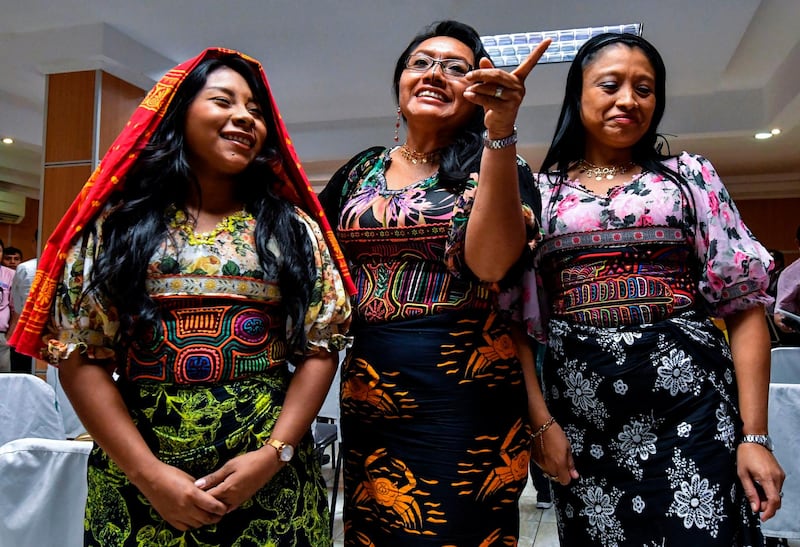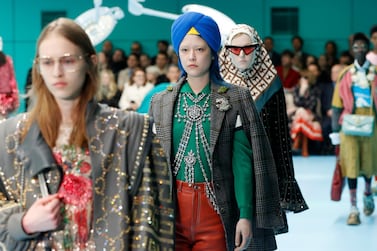Nike has withdrawn the release of a limited-edition shoe after it was accused of "pirating" a protected traditional design.
The sportswear maker had planned to sell a special-edition Air Force 1 trainer decorated with a multi-coloured, swirling pattern, in tribute to Puerto Rico. An indigienous community in Panama, however, objected to the launch, saying the design mirrored that of its "mola" textile.
The limited-edition shoe had been due to launch on June 6, but Nike has confirmed it will not hit shelves.
"We apologise for the inaccurate representation of the design origin for the Nike Air Force 1 'Puerto Rico' 2019," the brand told AFP. "As a result, this product will no longer be available."
@Nike Guys, these are cool sneakers, and I get the reference to the Coquí frog, but this pattern and design are NOT from Puerto Rico!
— Isaac Larrier (@IsaacLarrier) May 16, 2019
It's a design called MOLA, made by the Guna people in Panama and parts of Colombia.
It is a HUGE failure of your research departament. pic.twitter.com/NsgUrRiYAM
Panama's Guna community – one of the seven indigenous groups in the South American country – protested the design, accusing Nike of "pirating", according to the BBC.
Lawyers for the Guna said the shoe was created without the community's permission, disregarding intellectual property rights, and they would be seeking compensation.
"There is already damage to our image, to our design, to our mola. We are not going to wait for it to be thrown away," lawyer Aresio Valiente said at a news conference on Tuesday.
Most Guna live in Kuna Yala, also known as the San Blas islands, off the Caribbean coast of Panama. Environmentalists say the low-lying islands are being threatened by rising seas due to global warming.
"The mola is like a flag for the Guna. There is really a cultural identity that is articulated around the mola. It is a very strong element of identity," Monica Martinez, professor of social anthropology at Barcelona University, told AFP.
This is not the first time an indigenous community has accused a global fashion brand of copying its traditional designs. In 2015, a community of Tlahuitoltepec women from Mexico called out Isabel Marant for using an embroidered pattern that resembled their huipil clothing on a dress, according to The Guardian.
In 2016, Urban Outfitters reached a settlement with the Navajo Nation after using the Native American tribe's name in a line of clothing and accessories.






